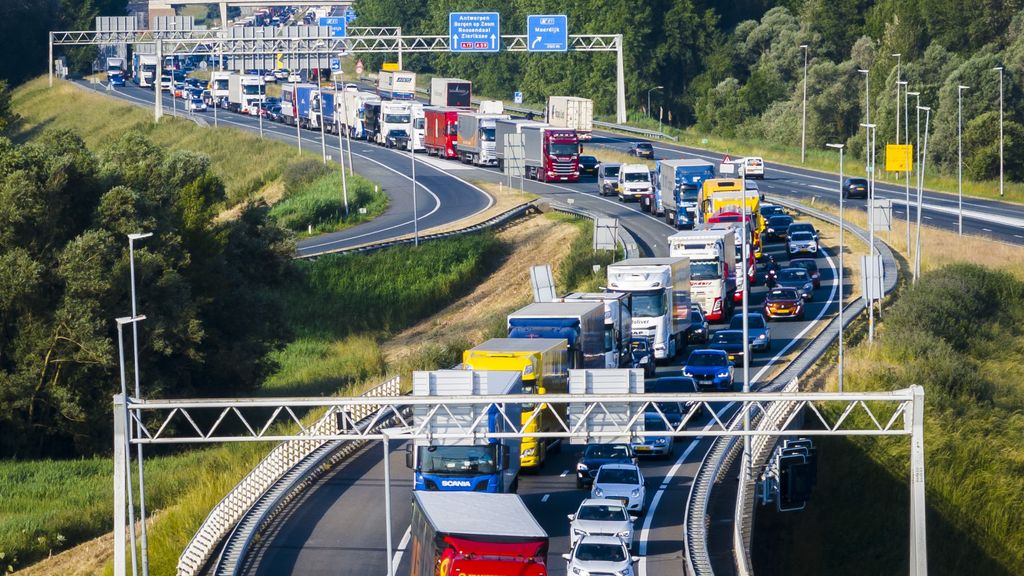NOS News•
Almost half of the working population suffers from heavy traffic on Tuesdays and Thursdays. Since the Corona pandemic, peak times in particular have become busier, according to research by Kantar Public.
The agency concluded that the number of car traffic will increase on all days in 2023 compared to 2019. Passengers using public transportation also indicate that they are more affected by congestion after Corona.
This is while four out of ten workers surveyed are not connected to an actual workplace. These people can go to the office at other times and days, but often they do not do it out of habit, because of consultations and because the boss wants to.
“Employees want it to be beneficial to come to the office. Agreements about, for example, different start times, ideal working days and working from home help with this,” says Hugo Houppermans, director of Coalitie Anders Reizen. Kantar Public conducted the research on behalf of the foundation, which is made up of seventy employers who together represent 550,000 employees.
According to Hubermans, there are easy ways for employers to avoid the Tuesday and Thursday crowds. “There are companies that agree that you don’t meet physically before 10 a.m. or that agree that entire teams work together physically on Mondays and Wednesdays.”
One such company is NXT Content, which is a PR and marketing agency. There, Tuesdays and Thursdays are intentionally work-from-home days and all appointments are done through Teams. This is not often a problem for customers.
Partly because of the congestion on public transport, Amsterdam companies are choosing to work partly from home. There are moments together on other workdays. “We start the week on Monday, we meet on Wednesday in the middle of the week and Friday is the brew,” says owner Johan Kunst.
There is no need to come to the office.
Friday is also a normal office day at Great Place To Work, an organizational culture research agency. “We really see the end of that day as a connecting moment, to close the week together,” says Jan van der Wegen, the company’s HR director.
Fewer meetings with outside parties are also scheduled that day, so that there is more room for colleagues. “The rest of the time, people are free to decide when and where they work, based on their own needs and what’s best for the organization. As long as you do your work. Our meetings are mainly online too. There’s no need to come into the office.”
Flexibility
The staff of the Koos Service Design agency cannot avoid traveling on the busiest days of the week. “Our clients often want to do session work only on Tuesdays and Thursdays, and not on Fridays, for example,” says Boris Gukin of the company. “Then you have to travel from Amsterdam to, say, Arnhem on a full train. The crowds keep to themselves.”
Brett Prior, director of human resources at AFAS Software, has heard that employers expect employees to come into the office again. In the company itself, there are no longer mandatory working days since Corona, the employees are responsible themselves. “Being in the office should be a pleasure, not an obligation.”
Houppermans encourages the flexibility of these companies. “We now join each other like herd animals in traffic jams, or on public transport. The social consequences are enormous: it causes us more stress, it produces more emissions and it all causes delays. Why would you want that?”

“Lifelong zombie fanatic. Hardcore web practitioner. Thinker. Music expert. Unapologetic pop culture scholar.”








